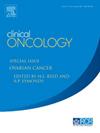使用分子工具识别和指导治疗未知原发癌症:系统综述
IF 3
3区 医学
Q2 ONCOLOGY
引用次数: 0
摘要
未知原发癌(CUP)由于其异质性和预后不良,是一个重大的临床挑战。分子谱分析已成为解决CUP相关挑战的一种有前途的方法。本系统综述评估了不同类型的分子工具对CUP诊断和治疗价值的现有证据。方法检索2013年至2024年间发表的medline、EMBASE和Cochrane系统评价数据库,筛选与在CUP患者临床管理中使用分子谱检测相关的合格研究。本综述纳入了8项研究。结果在文献检索的1556篇出版物中,包括4项随机对照试验(rct)、1项比较研究、2项报告比较数据的单臂研究和1项诊断研究。通过推荐、评估、发展和评价分级(GRADE)方法评估,这些研究的总证据的确定性从低到极低不等。使用现代方法确定肿瘤起源或肿瘤不可知的可操作突变的研究表明,获得靶向治疗和免疫治疗对CUP患者的生存有积极影响。结论本系统综述强调了CUP患者现有文献的复杂性。由于研究设计的原因,已发表的分子谱分析工具通过指导治疗对生存结果的影响有限;然而,接受免疫治疗或靶向治疗的患者生存率有所提高。未来的随机对照试验或高质量比较研究的结果将阐明分子谱分析工具在CUP患者中的作用。本文章由计算机程序翻译,如有差异,请以英文原文为准。
The Use of Molecular Tools for Identifying and Guiding Treatment of Cancers of Unknown Primary: A Systematic Review
Background
Cancer of unknown primary (CUP) represents a significant clinical challenge due to its heterogeneity and the poor prognosis often associated with the disease. Molecular profiling has emerged as a promising approach to address the challenges associated with CUP. This systematic review evaluates the existing evidence on the value of different types of molecular tools for CUP diagnosis and treatment.
Methods
MEDLINE, EMBASE and Cochrane Database of Systematic Reviews published between 2013 and 2024 were searched for shortlisting eligible studies, relating to the use of molecular profiling tests in clinical management of CUP patients. Eight studies are included in this review.
Results
Among 1556 publications from the literature search, four randomized controlled trials (RCTs), one comparative study, two single-arm studies reporting comparative data, and one diagnostic study were included.
The certainty of the aggregate evidence ranged from low to very low for the studies, as assessed by the Grading of Recommendations, Assessment, Development, and Evaluation (GRADE) approach. Studies using contemporary methods to determine tumour of origin or tumour agnostic actionable mutations demonstrated the positive impact on survival of CUP patients with access to targeted therapy and immunotherapy.
Conclusions
This systematic review highlights the complexities of the existing literature in patients with CUP. The published impact of molecular profiling tools on survival outcomes by guiding treatment has been limited due to study design; however, improved survival has been shown in patients who have received immunotherapy or targeted therapy. The results from future RCTs or high-quality comparative studies will clarify the role of molecular profiling tools in patients with CUP.
求助全文
通过发布文献求助,成功后即可免费获取论文全文。
去求助
来源期刊

Clinical oncology
医学-肿瘤学
CiteScore
5.20
自引率
8.80%
发文量
332
审稿时长
40 days
期刊介绍:
Clinical Oncology is an International cancer journal covering all aspects of the clinical management of cancer patients, reflecting a multidisciplinary approach to therapy. Papers, editorials and reviews are published on all types of malignant disease embracing, pathology, diagnosis and treatment, including radiotherapy, chemotherapy, surgery, combined modality treatment and palliative care. Research and review papers covering epidemiology, radiobiology, radiation physics, tumour biology, and immunology are also published, together with letters to the editor, case reports and book reviews.
 求助内容:
求助内容: 应助结果提醒方式:
应助结果提醒方式:


